Fall is a beautiful time of year with changing leaves, cooler temperatures, and pumpkin-spiced everything. However, for allergy sufferers, fall can also mean a season of sneezing, coughing, and itchy eyes. As the weather changes, it is essential to consider ways to improve indoor air quality and reduce fall allergy symptoms. One of the most effective ways to do this is with air purifiers.
Do air purifiers help with allergies? Yes, they do! Air purifiers work by capturing and removing contaminants from indoor air, including allergens such as pollen, mold spores, and dust mites. In addition, some air purifiers are designed to remove harmful gasses and chemicals, including volatile organic compounds (VOCs) that can irritate respiratory systems and exacerbate allergies.
At Goff Heating & Air Conditioning, we understand the importance of indoor air quality and offer air purifiers to help homeowners reduce fall allergy symptoms. In this blog, we will discuss how air purifiers work, the types of air purifiers available, and why investing in an air purifier is a smart choice for improving air quality within the home and reducing fall allergy symptoms.
How Do Air Purifiers Work?
If you’re looking into an air purifier for allergies, it’s important to know how air purifiers work.
Most air purifiers and air cleaner systems work by using a filter or filtration system to capture and remove indoor air pollutants. They use high-efficiency replacement filters for capturing and removing airborne particles. These air filters trap particles including airborne allergenssuch as pet hair, pet dander, pollen, mold spores, and dust mites.
Some air purifiers for allergies also use a three stage filtration system to combat both the larger particles and tiny particles that contribute to indoor air pollution.
- In the first stage, indoor air passes through a pre-filter. The pre-filter captures larger airborne particles.
- Air purifiers equipped with HEPA filters (high efficiency particulate air) provide further air filtration to remove indoor pollutants in the next stage. HEPA filters are designed to capture indoor particulate matter as small as 0.3 microns. The true HEPA filter removes most allergens, including pollen, mold spores, and dust mites.
- Lastly, an activated carbon filter to filter odors and chemicals, including VOCs like fumes, cigarette smoke, and wildfire smoke. Activated carbon filters have an activated carbon layer capturing chemical compounds on the surface of the deodorizing filter material, effectively removing them from the air.
UV-C air purifiers use ultraviolet-C light to kill bacteria and viruses as they pass through the device. These tested air purifiers are especially useful for people with respiratory conditions, and can help prevent the spread of illnesses in the home. Some of the best air purifiers for allergies may combine an air filtration system with UV-C light to both trap airborne particles and deactivate airborne pathogens for advanced air purification.
Types of Air Purifiers for Allergies
If you are considering an air purifier for allergies, you’ll also need to determine whether a portable air purifier or whole house air purifier is best for your home. Think about how much square footage you have, as the capacity of air purifiers and air cleaners ranges with each different model.
Portable air purifiers are designed to be moved from room to room and are an excellent option for people who want to focus on a specific area of their home. Portable air purifiers are available in various sizes and shapes, from compact units that can fit on a tabletop to larger units that can purify the air in an entire room.
Whole house air purifiers are installed in the HVAC systemand are designed to purify the air throughout the entire house. These systems are typically more expensive than portable units but offer the benefit of purifying the air in every room of the home plus they have low energy consumption.
When it comes to preventing or relieving allergies, a whole house air purifier is the recommended air purifier for allergies. Whole house air purifier models are a more effective and reliable solution as compared to portable air purifiers. While portable air purifiers are portable and typically a budget friendly air purifier option, they have limitations that make them less effective in combating indoor allergens.
Why Invest In an Air Purifier for Allergies?
Investing in an air purifier for allergies is a smart choice for improving indoor air quality and reducing the types of airborne allergens that contribute to fall allergy symptoms. Not only can air purifiers remove airborne allergens and other contaminants from indoor air, but they can also help to reduce the risk of respiratory infections, especially during flu season.
In addition, air purifiers are especially beneficial for people with asthma and other respiratory conditions. By removing allergens, pollutants, and other harmful particles from indoor air, air purifiers reduce the severity of asthma symptoms and improve overall respiratory health.
Air purifiers also help to reduce unpleasant odors and improve the overall comfort of the home. By removing smoke, pet dander, and cooking odors, air purifiers can help to create a more pleasant living environment for homeowners.
Ensure Professional Installation of Your Allergy Air Purifier at HomeHave an Air Purifier for Allergies Professionally Installed in Your Home
Air purifiers can help with fall allergy symptoms by removing allergens and other contaminants from indoor air. Air purifiers for allergies work by using filters or filtration systems to capture and remove particles, including pollen, mold spores, and dust mites.
At Goff Heating & Air Conditioning, we offer air purifiers to help homeowners reduce fall allergy symptoms, improve indoor air quality, and enjoy a healthier, more comfortable living environment. Contact us todayto have a new air purifier for allergies professionally installed by our team.

